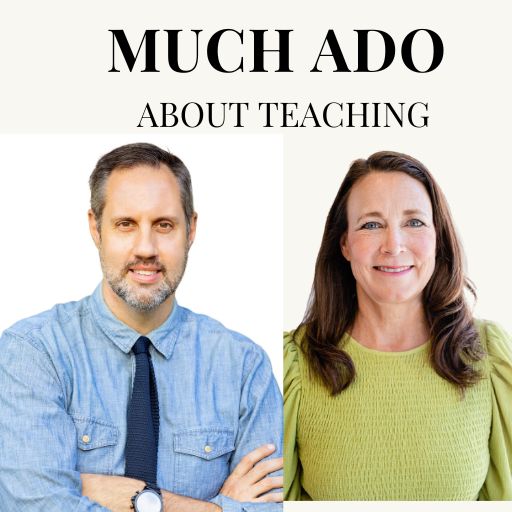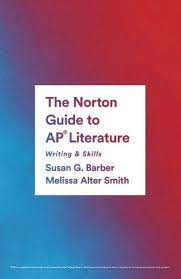Greetings from the Columbus airport where I’m awaiting my flight home from NCTE. By the time this is sent out, Thanksgiving plates will be cleared, the Iron Bowl will be decided (Roll Tide), and our thoughts will be turning to Monday morning. Before time gets away, I wanted to leave a few observations from this year’s NCTE.
1 – Community matters.
Yes – we were together last year in Anaheim for NCTE, but we were still feeling our way back from being in online spaces. This year felt different. More socializing. Full sessions. Bigger exhibition hall. And while everyone was acknowledging that this year definitely feels different than other years in terms of student engagement and transactional learning, being together felt good. Even hopeful. The best part of NCTE has to be the dinners, side conversations, and being with others who are in the daily work. There’s power in togetherness, and even if you weren’t able to attend, I hope that the strengthened community of those who were in attendance will spill over to your spaces. I love next year’s theme of Heart, Hope, Humanity which will invite us to lean more fully into these ideas.
2 – AI conversation is center stage.
There were several sessions on AI, and lots of side conversations about it. Classroom teachers want to know how to keep students from using it for cheating while others want to know how to incorporate these tools into the classroom. There’s a lot of buzz around AI and ChatGPT, but I am standing by what I continue to say: It’s going to take a minute (or a couple of years) to sort it all out. ChatGPT seemed to come on the scene overnight, but we are not going to have an overnight solution. I went to two sessions on AI at NCTE (one I was a panelist and one was from University of Michigan PhD candidates) and learned some possible applications for ChatGPT in my classroom but most appreciated this suggestion which lands where I am – in the messy middle.
I’ll continue to play around with AI to learn more about it but don’t expect dramatic changes in classrooms in the next year or so.
3 – Poetry and art were also everywhere.
I’ve noticed that the more technology makes a move to the forefront, the humanities counter. Actually, I like to think of it the other way; the arts lead the way. There were too many poetry sessions to count. And even in the “non-arts” sessions, the arts were everywhere. Art – whether visual, literary, performance, or music – stands in the gap when we do not know how to put our feelings into words. Glenda Funk shared a poem reflecting on the fire that broke out at Highland H. S. in Pocatello, Idaho in April of 2022 and how their plans shifted to a creative writing unit to help students (and staff) process their loss.
In our session The Guide to AP English, Melissa Smith shared some quick and unconventional questions that help students discuss a poem and had participants choose a question and try it out on Maggie Smith’s poem “At Your Age I Wore a Darkness.”
While the overall push in education is to drill down in order to “make up for learning loss,” push back and enjoy some literature as a celebration of art itself.
4 – Writing Instruction
Another popular topic – the teaching of writing, and I am here for this! As more and more teachers make the shift from assigning writing to teaching writing, the conversation becomes more HOW. Joel Garza, one of the most thoughtful educators I have the privilege of knowing, went through a lesson on writing a homage which he defines as an “act of creation based upon respect & admiration, that alludes to but is not limited by a source of inspiration.” He talked us through the process of studying mentor texts, sprint writing, drafting, and final copy writing. What I loved most was his analogy of style moves as choices on a menu rather than a checklist. This really empowers students as personal writers rather than students who are writing for an assignment.
5 – Hold mirror up to nature
Having the time and space to pause to think about our WHY is so valuable and critical, and NCTE provides a place for this. A couple of things were notable during Tom Hanks’ keynote. 1 – He modeled his talk after a Shakespearean arc divided into 5 acts. At the climax, Act III, scene 3, he said that he had the answer to all of our problems: As students enter the room, smash their cell phones with a hammer. HA! But seriously, he spoke of how difficult our jobs are because of the distractions we’re competing against. Then he turned to our WHY leading us through an acting exercise. Hanks concluded with comments reflecting on Hamlet saying, “Holding a mirror up to nature is a way we can all reach each other, understand each other, and begin to have empathy, understanding and respect.” What a gift we have to hold mirrors.


Susan Barber teaches AP Lit and Contemporary Literature at Midtown High School in Atlanta, Georgia and serves as the College Board Advisor for AP Lit. In addition to reading, writing, and investing in the next generation, she loves watching college football with her family especially when Alabama is playing.












